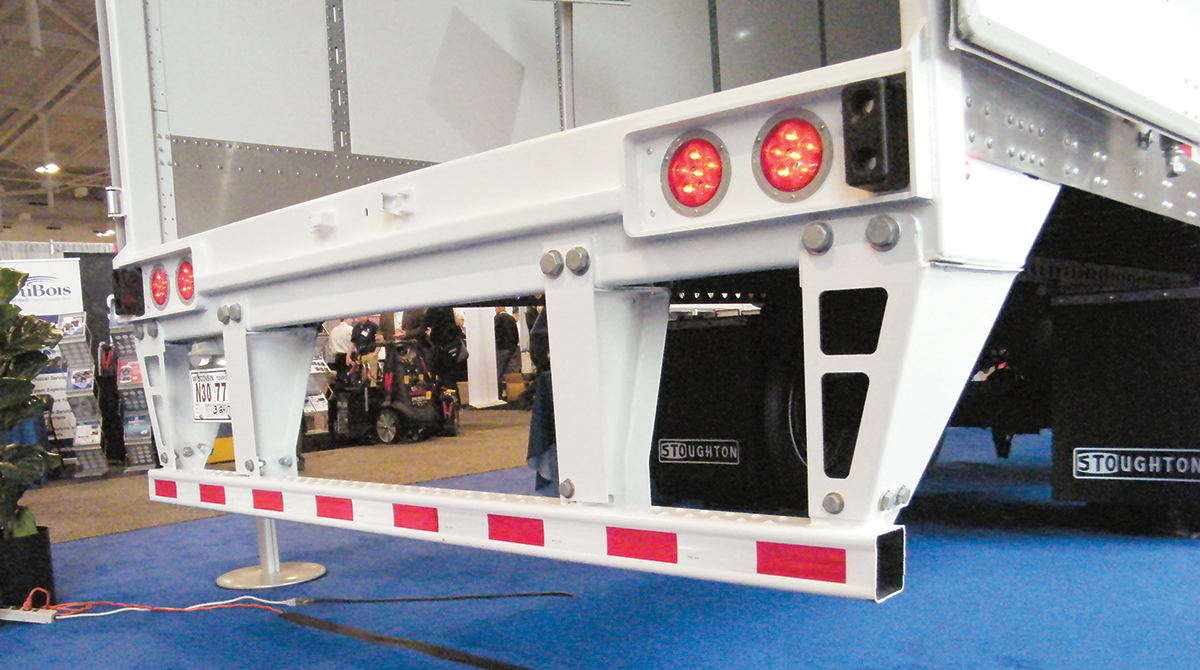Registration is now open online for the 2023 Idealease/NPTC Safety Seminars!
Idealease and the National Private Truck Council NPTC will host safety seminars again in 2023. This year’s one-day seminar will focus on data available from trucks today concerning safety, basic safety and compliance, regulation changes, and CSA. The seminars will be provided to all Idealease customers, potential customers, and NPTC members at no charge. The seminar provides essential information applicable to both novice and experienced transportation professionals. Seminars currently available for registration have their venues secured. If you cannot register for the seminar in your area, check back, as registration availability will be added as the venues are secured. This information will be updated weekly in this bulletin. To register for an upcoming seminar in 2023, click on the following link:
http://www.idealease.com/safety-seminar-registration
NHTSA Denies CVSA Petition on Rear-Impact Guards
The National Highway Traffic Safety Administration has denied a petition for rulemaking from the Commercial Vehicle Safety Alliance requesting that NHTSA amend Federal Motor Vehicle Safety Standard (FMVSS) No. 223, “Rear Impact Guards,” to remove the certification label requirement in S5.3 of the standard that applies to trailers and semitrailers.
CVSA argued that the certification label requirement results in the citation of rear impact guards that otherwise meet the physical requirements and have no negative impact on safety. CVSA said the labels, which must be affixed to the rear impact guard, frequently wear, fade, or are removed during repair and that motor carriers are unable to obtain new certification labels from the original trailer manufacturers because they can no longer guarantee that the rear impact guard meets the FMVSS manufacturing standard. CVSA concluded there are no reasonable options to meet the certification requirements.
NHTSA denied the petition “because removing the labeling requirement for rear impact guards would compromise the enforceability of FMVSS No. 223 and thereby increase the safety risk to the motoring public.” But the decision failed to address the real-world problems with complying with the standard when labels are worn, faded, or removed during use.
FMCSA Seeks Comments on Regulatory Changes for CMVs with Automated Driving Systems
The Federal Motor Carrier Safety Administration has issued a supplemental advance notice of proposed rulemaking seeking comments on factors the agency should consider in amending its regulations to establish a framework for CMV operations using Automated Driving Systems.
FMCSA published an advance notice of proposed rulemaking (ANPRM) on May 28, 2019, seeking comments on regulations that might need to be amended, revised, or eliminated to facilitate the safe introduction of ADS-equipped CMVs onto the Nation’s roadways. The agency continues to consider amendments to its regulations to ensure the secure integration of ADS-equipped CMVs into interstate motor carriers’ operations.
The agency notice does not contain any specific regulatory proposals. Still, it requests additional information from the public and regulated entities to develop a framework for the safe operation of automated CMVs. In addition, the Department of Transportation has required reporting all crashes involving CMVs with specific advanced driver assistance systems to the National Highway Traffic Safety Administration.
The notice asserts that DOT is assessing the long-term safety benefits of ADS and its broader impacts on workers, drivers, and all who use the nation’s roadways. Labor interests have recently opposed efforts to promote autonomous CMVs in certain States, although there continues to be a critical shortage of drivers in the trucking industry.
Heart Month Tip
What can you do to help control hypertension?
- Eat healthy foods. Try the dietary approach to control hypertension. Eat fruits, vegetables, whole grains, and low-fat dairy foods. Get plenty of potassium. Eat less saturated fat, trans fat, and total fat. Limit the amount of sodium (salt) in your diet.
- Maintain a healthy weight. If you’re overweight, losing even 5 pounds can lower your blood pressure.
- Increase physical activity. Strive for at least 30 minutes of physical activity a day.
- Limit Alcohol. Even if you are healthy, alcohol can raise your blood pressure. Drink in moderation: it is suggested that no more than one drink a day for women and two a day for men.
- Don’t Smoke. Tobacco injures blood vessel walls and speeds up the hardening of the arteries. If you smoke, get help. Ask your doctor to help you quit!
- Manage your stress. Reduce stress as much as possible. Practice healthy coping techniques, such as muscle relaxation and deep breathing. Get plenty of sleep!








